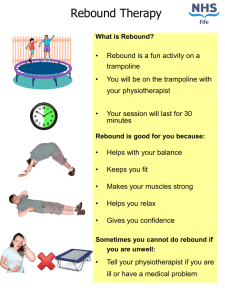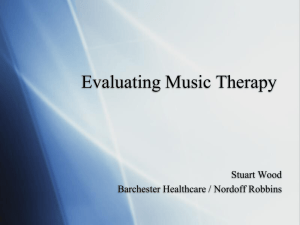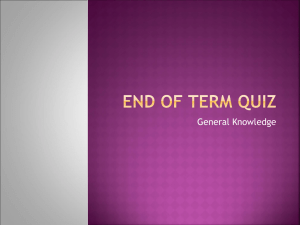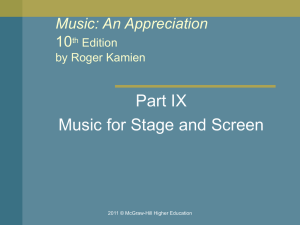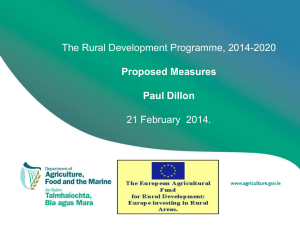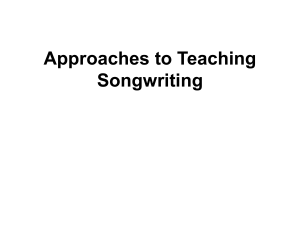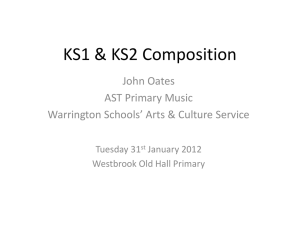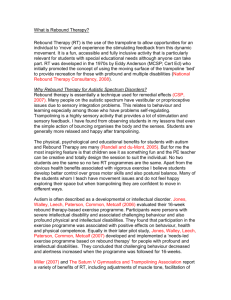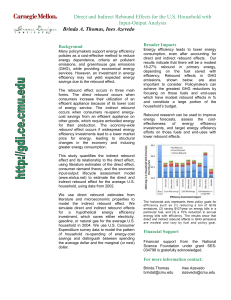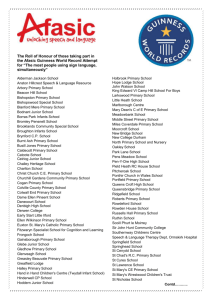Rebound Therapy with Live Music Accompaniment by Phil Tomkins
advertisement
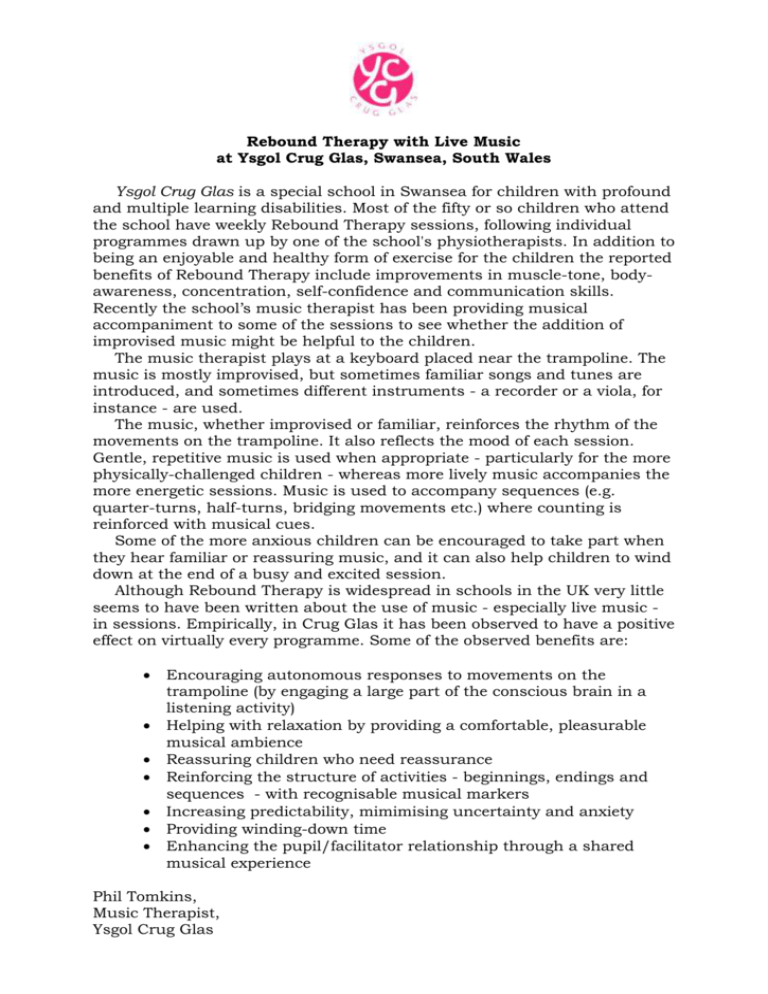
Rebound Therapy with Live Music at Ysgol Crug Glas, Swansea, South Wales Ysgol Crug Glas is a special school in Swansea for children with profound and multiple learning disabilities. Most of the fifty or so children who attend the school have weekly Rebound Therapy sessions, following individual programmes drawn up by one of the school's physiotherapists. In addition to being an enjoyable and healthy form of exercise for the children the reported benefits of Rebound Therapy include improvements in muscle-tone, bodyawareness, concentration, self-confidence and communication skills. Recently the school’s music therapist has been providing musical accompaniment to some of the sessions to see whether the addition of improvised music might be helpful to the children. The music therapist plays at a keyboard placed near the trampoline. The music is mostly improvised, but sometimes familiar songs and tunes are introduced, and sometimes different instruments - a recorder or a viola, for instance - are used. The music, whether improvised or familiar, reinforces the rhythm of the movements on the trampoline. It also reflects the mood of each session. Gentle, repetitive music is used when appropriate - particularly for the more physically-challenged children - whereas more lively music accompanies the more energetic sessions. Music is used to accompany sequences (e.g. quarter-turns, half-turns, bridging movements etc.) where counting is reinforced with musical cues. Some of the more anxious children can be encouraged to take part when they hear familiar or reassuring music, and it can also help children to wind down at the end of a busy and excited session. Although Rebound Therapy is widespread in schools in the UK very little seems to have been written about the use of music - especially live music in sessions. Empirically, in Crug Glas it has been observed to have a positive effect on virtually every programme. Some of the observed benefits are: Encouraging autonomous responses to movements on the trampoline (by engaging a large part of the conscious brain in a listening activity) Helping with relaxation by providing a comfortable, pleasurable musical ambience Reassuring children who need reassurance Reinforcing the structure of activities - beginnings, endings and sequences - with recognisable musical markers Increasing predictability, mimimising uncertainty and anxiety Providing winding-down time Enhancing the pupil/facilitator relationship through a shared musical experience Phil Tomkins, Music Therapist, Ysgol Crug Glas
